第17章 ALOHA OE(1)
Never are there such departures as from the dock at Honolulu. The great transport lay with steam up, ready to pull out. A thousand persons were on her decks; five thousand stood on the wharf. Up and down the long gangway passed native princes and princesses, sugar kings and the high officials of the Territory. Beyond, in long lines, kept in order by the native police, were the carriages and motor-cars of the Honolulu aristocracy. On the wharf the Royal Hawaiian Band played "Aloha Oe," and when it finished, a stringed orchestra of native musicians on board the transport took up the same sobbing strains, the native woman singer's voice rising birdlike above the instruments and the hubbub of departure. It was a silver reed, sounding its clear, unmistakable note in the great diapason of farewell.
Forward, on the lower deck, the rail was lined six deep with khaki-clad young boys, whose bronzed faces told of three years' campaigning under the sun. But the farewell was not for them. Nor was it for the white-clad captain on the lofty bridge, remote as the stars, gazing down upon the tumult beneath him. Nor was the farewell for the young officers farther aft, returning from the Philippines, nor for the white-faced, climate-ravaged women by their sides. Just aft the gangway, on the promenade deck, stood a score of United States Senators with their wives and daughters--the Senatorial junketing party that for a month had been dined and wined, surfeited with statistics and dragged up volcanic hill and down lava dale to behold the glories and resources of Hawaii. It was for the junketing party that the transport had called in at Honolulu, and it was to the junketing party that Honolulu was saying good-bye.
The Senators were garlanded and bedecked with flowers. Senator Jeremy Sambrooke's stout neck and portly bosom were burdened with a dozen wreaths. Out of this mass of bloom and blossom projected his head and the greater portion of his freshly sunburned and perspiring face. He thought the flowers an abomination, and as he looked out over the multitude on the wharf it was with a statistical eye that saw none of the beauty, but that peered into the labour power, the factories, the railroads, and the plantations that lay back of the multitude and which the multitude expressed. He saw resources and thought development, and he was too busy with dreams of material achievement and empire to notice his daughter at his side, talking with a young fellow in a natty summer suit and straw hat, whose eager eyes seemed only for her and never left her face. Had Senator Jeremy had eyes for his daughter, he would have seen that, in place of the young girl of fifteen he had brought to Hawaii a short month before, he was now taking away with him a woman.
Hawaii has a ripening climate, and Dorothy Sambrooke had been exposed to it under exceptionally ripening circumstances. Slender, pale, with blue eyes a trifle tired from poring over the pages of books and trying to muddle into an understanding of life--such she had been the month before. But now the eyes were warm instead of tired, the cheeks were touched with the sun, and the body gave the first hint and promise of swelling lines. During that month she had left books alone, for she had found greater joy in reading from the book of life. She had ridden horses, climbed volcanoes, and learned surf swimming. The tropics had entered into her blood, and she was aglow with the warmth and colour and sunshine. And for a month she had been in the company of a man--Stephen Knight, athlete, surf-board rider, a bronzed god of the sea who bitted the crashing breakers, leaped upon their backs, and rode them in to shore.
Dorothy Sambrooke was unaware of the change. Her consciousness was still that of a young girl, and she was surprised and troubled by Steve's conduct in this hour of saying good-bye. She had looked upon him as her playfellow, and for the month he had been her playfellow; but now he was not parting like a playfellow. He talked excitedly and disconnectedly, or was silent, by fits and starts.
Sometimes he did not hear what she was saying, or if he did, failed to respond in his wonted manner. She was perturbed by the way he looked at her. She had not known before that he had such blazing eyes. There was something in his eyes that was terrifying. She could not face it, and her own eyes continually drooped before it.
Yet there was something alluring about it, as well, and she continually returned to catch a glimpse of that blazing, imperious, yearning something that she had never seen in human eyes before.
And she was herself strangely bewildered and excited.
The transport's huge whistle blew a deafening blast, and the flower-crowned multitude surged closer to the side of the dock. Dorothy Sambrooke's fingers were pressed to her ears; and as she made a moue of distaste at the outrage of sound, she noticed again the imperious, yearning blaze in Steve's eyes. He was not looking at her, but at her ears, delicately pink and transparent in the slanting rays of the afternoon sun. Curious and fascinated, she gazed at that strange something in his eyes until he saw that he had been caught. She saw his cheeks flush darkly and heard him utter inarticulately. He was embarrassed, and she was aware of embarrassment herself. Stewards were going about nervously begging shore-going persons to be gone. Steve put out his hand. When she felt the grip of the fingers that had gripped hers a thousand times on surf-boards and lava slopes, she heard the words of the song with a new understanding as they sobbed in the Hawaiian woman's silver throat: